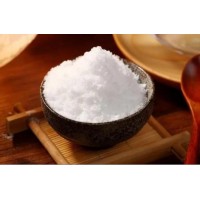Does L-carnitine really have a direct effect on weight loss?
L-carnitine is an amino acid that promotes the conversion of fat into energy. Red meat is the main source of L-carnitine, which means L-carnitine is an amino acid derivative isolated from meat.
L-carnitine is an amino acid that promotes the conversion of fat into energy. Red meat is the main source of L-carnitine, which means L-carnitine is an amino acid derivative isolated from meat.
Effects of L-carnitine:
1. Helps burn fat
L-carnitine is an essential coenzyme in the process of fat metabolism, which can promote the entry of fatty acids into mitochondria for oxidative decomposition.
The metabolic process of fat has to go through an obstacle, so L-carnitine acts as a porter! The long-chain fatty acids are transported to the mitochondria little by little so that they can be further oxidized!
Therefore, L-carnitine is just a means of delivery. As for how much fat is consumed, it does not depend on L-carnitine.

2. Enhance endurance and improve athletic ability
Because L-carnitine can promote the oxidation of fatty acids through the mitochondrial membrane for energy supply, it can promote the burning of fat in the body to provide energy during exercise.
At the same time, L-carnitine can also promote the oxidative utilization of branched-chain amino acids and can change the activity of respiratory enzymes in mitochondria, thereby improving the ability of the body's oxidative functions.
3. Promote fatigue recovery
Excessive production of lactic acid during exercise will increase the acidity of blood and tissue fluids, reduce the production of ATP, and lead to fatigue. L-carnitine supplementation can promote the activity of intracellular pyruvate deaminase, thereby promoting the oxidative utilization of glucose, which is beneficial to delay the occurrence of fatigue during exercise.














